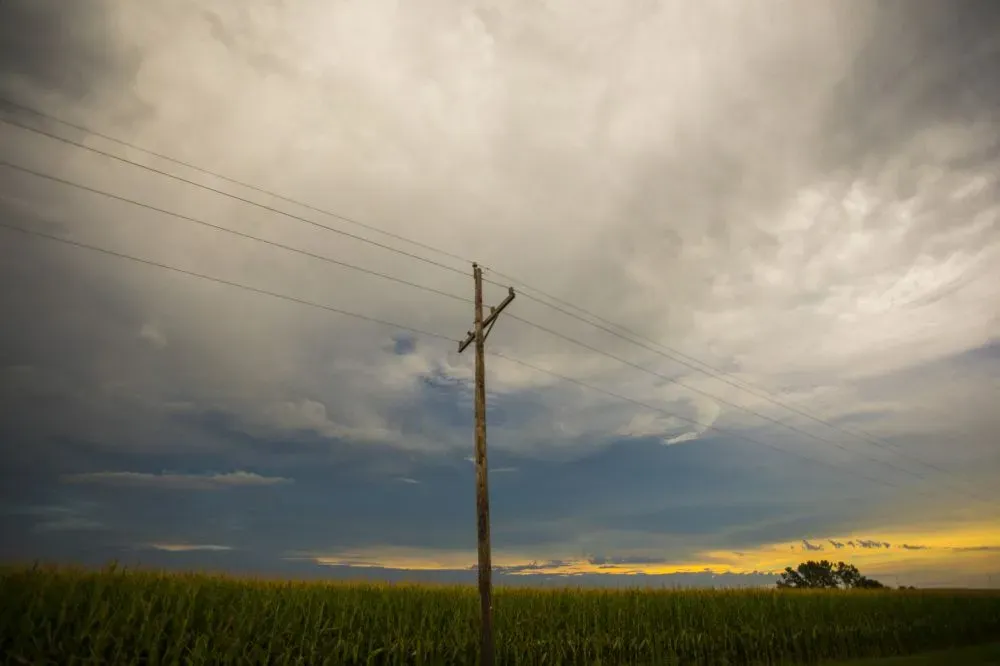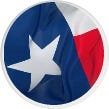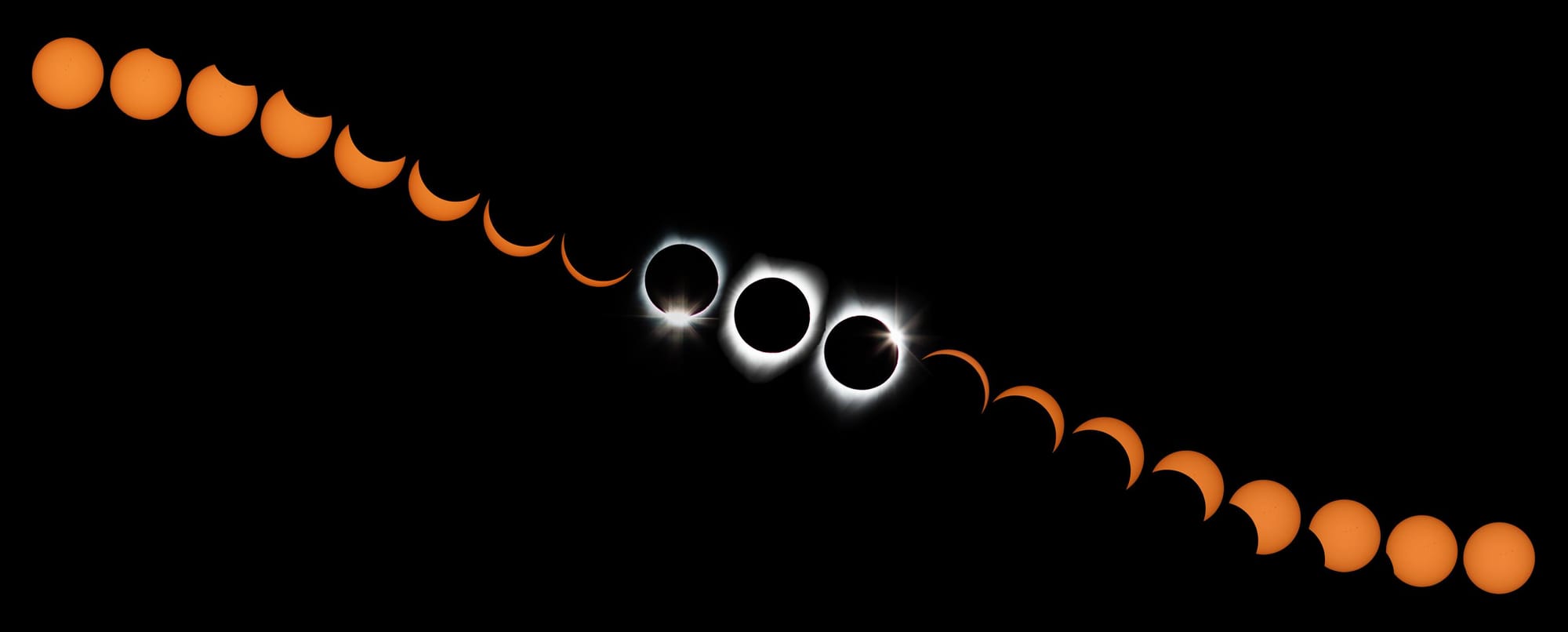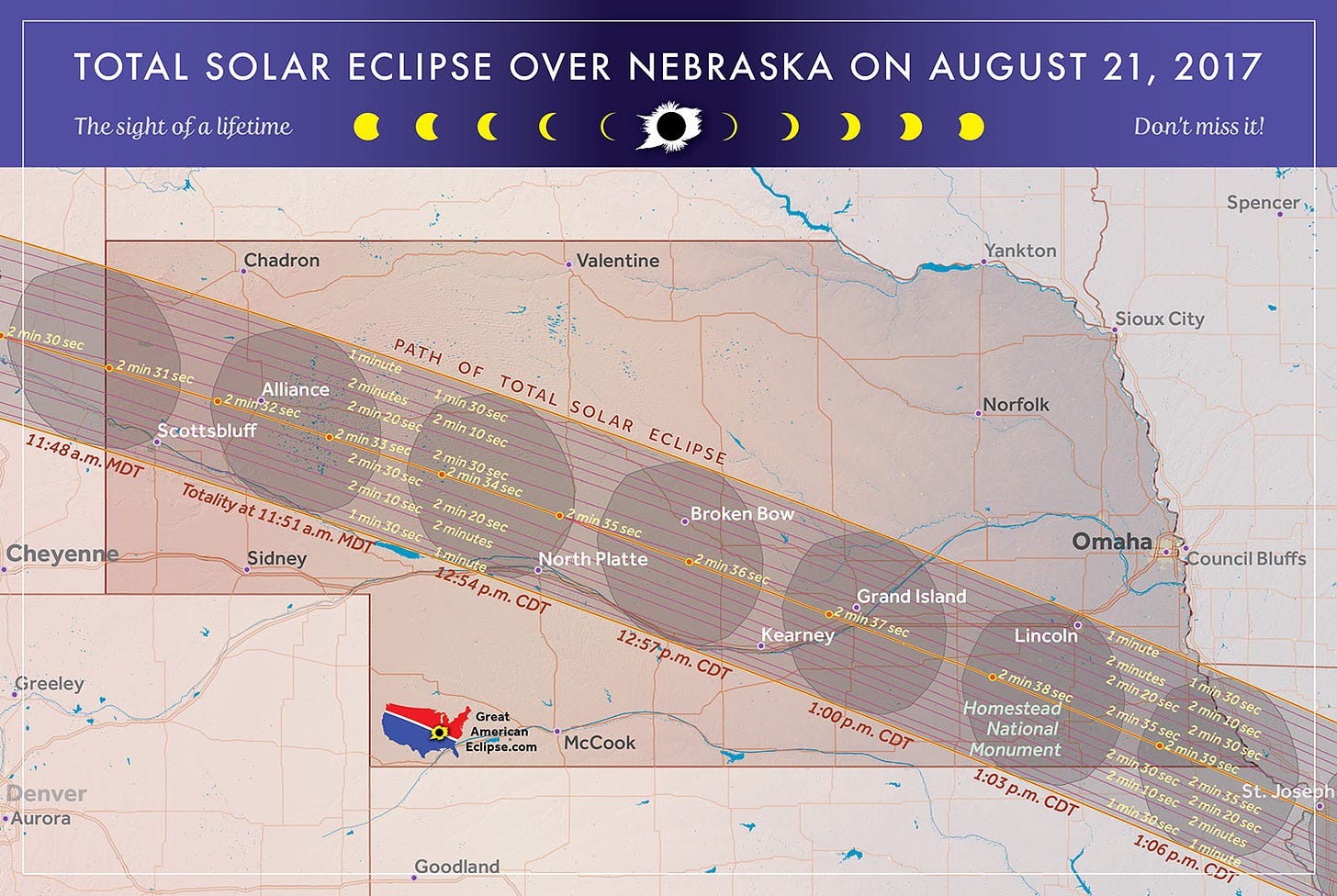Racing the Sun
"An eclipse, like all of nature’s majestic endeavors, can fill a soul with edifying conclusions. Eclipses are rare and those with totality are even more scant and scattered across history’s timeline."

“If you want to know the secrets of existence, do the math. There is no other way. There is only one truth, the truth of mathematics. It is the infallible, absolute truth. All truth-seekers come in the end to mathematics. Pythagoras got there first. It’s time for everyone else to join him and hear the Music of the Spheres. Are your ears attuned to the perfect notes of the universe? Only the gods can hear the divine music. Are you one of them?” ― Thomas Stark, The Sheldrake Shift: A Critical Evaluation of Morphic Resonance

Origination of the idea is still confounding. Maybe the cause was my endless fascination with the natural world, rhythms of the seasons, mysteries of the sky, mountains beyond mountains, and glorious desert lights. I only knew that I had never seen a total eclipse of the sun, and one was supposed to cross the North American continent one August day in 2017. In fact, the shadow was to mark a track northwest to southeast across the U.S. and turn midday into the dark of night, a phenomenon I wanted to experience. The location nearest to Austin was almost a thousand miles distant, and according to coordinates, sitting amid a Nebraska cornfield.
I called Gary, who loves motorcycling almost as much as I do.
“Hey, I want to go see the eclipse,” I said.
“It’s not coming anywhere near us, is it?”
“Depends on what you mean by ‘near.’ Is Nebraska included in that term?”
“Not exactly. Is that the closest? Where you can experience the ‘totality?’”
“Yeah, I wanna go. Nighttime in the middle of the daytime will be an amazing experience.”
“Isn’t it like 48 hours from now? And, not to repeat myself, but in Nebraska?”
“Yeah, let’s ride up there.”
“Seriously? It’s August, and 110 degrees, and we’re old guys.”
“All true. But at least we can still act like we aren’t, and usually do.”
“I don’t know, man. Lemme think about it and call you back.”
The next morning, just after dawn, we were rolling north of Austin on U.S. Highway 281, up through the Hill Country and the Bosque River Valley to pick up the Chisholm Trail Parkway to Fort Worth and beyond to the Interstate through Oklahoma. There was no real plan more detailed than just putting miles under our wheels until we ran out of daylight. We would find a campground, probably near the Kansas and Nebraska line, sleep in our tents, and get out early the next day for a few more hours to reach the path of totality.

There are places you can go and natural events to be experienced that take you closer to the world as it is. In the Australian Outback, beneath the shining coal curve of a night sky, a sense arrives that you are falling into the stars and the Southern Cross is almost at hand. There is nothing but you and the planet turning beneath your feet and you think you know and feel things you did not before the night arrived out there beyond human intervention. Up on the Great Divide in the Rocky Mountains, the stars seem to come up from an unseen valley and rise with haste as if they were consciously chasing the sun from the sky. Nightfall on the South Rim Plateau of Big Bend National Park will drape you with constellations that create a night eternally different than any other you will ever live.
By the time we crossed the Red River on the Oklahoma border, the temperature was already past the century mark. Our goal for the day was to ride 650 miles to Salina, Kansas, where we would camp and leave early the next morning for a spot in Central Nebraska. The mileage was ambitious even in the best of motorcycle weather and the dry, 100-plus degree wind scouring the prairie was drawing moisture from our bodily determination to get as close as possible to the eclipse path. We were stopping every 100 miles to drink fluids to prevent dehydration but the previous summer I had learned that even that simple protocol could be inadequate. On a ride down from Colorado with my bride sitting pillion, I experienced 75-mile-an-hour vertigo in the July Texas heat. My view of the horizon began to teeter and flip. I was able to stop the motorcycle without falling, get the kickstand down, and dismount, but could not stand upright. Eventually, an ambulance took me to a hospital for an overnight of scans and IV drips.

“I hate the Interstate,” Gary said over the helmet intercom.
“Me, too, but in this case, it serves our purpose. Gets us far, fast.”
“I’m rethinking this a bit,” he said. “Maybe the heat is giving me unexpected clarity or something. But it seems a long way to go for a little over three minutes of excitement.”
“No turning around, man. We’re halfway across Oklahoma. More than halfway to Salina.”
“Let’s get off here and get something cold to drink.”
The American Interstate is a bane and a benefit. The hissing roar of rushing tractor-trailers and family sedans never ceases while suggesting endless commerce produced by the concrete. Somewhere near Salina, we would pick up a more sedate two-lane into the oceans of cornstalks and find our place to await the mysterious minutes of the total eclipse of the sun. After gassing up the bikes, we found shade next to the quick stop’s wall and guzzled water between bites of a microwave burrito with the texture of industrial cardboard.
“Pretty glamorous, eh?” I asked Gary.
“Yeah, only Kansas could be more amazing. I wonder what their microwave Mex food is like.”
“Never thought you’d have such adventure, did you?”
“Anything is possible in Oklahoma, ya know?” He tossed his burrito wrapper. “Let’s go. Beautiful Kansas awaits.”
The transition from day to night across the plains states is a process that often feels like it might be measured in almost geologic time. In Kansas, under clear skies, the planet feels like it slows on its axis to facilitate an appreciation of the celestial magic. Pastel blue begins to fade and become tinged with orange and then deepened with purple and mixtures of colors not clearly distinct as one but stunning in a combined clarity. We were, however, too busy to notice while looking for our tent sites in the dark at a commercial campground and discovered they were gravel parking slots. The circumstance was intolerable after 14 hours of suffering in the sun on a motorcycle and we found hotel rooms a few miles distant.
We ended up the next morning at an intersection of two roads not far from the Nebraska community of Belleville. The county chip seal cut through long fields of tall corn and we parked the motorcycles at a country convenience store. Above the ticking of the stopped engines, we were close enough to hear the shuffling of cornstalks brushing against each other in a rising breeze. Families were arriving in farm trucks and sedans, setting up lawn chairs and ice chests in the ditches by the road. A few tractors materialized out of a section of crop and stopped with a diesel rattle. Conversations were muted and I thought there was a sense among the small gathering that they were expressing reverence for the approaching moment. Gary and I sat a bench by the gas station and walked into a clearing as the light began a rare midday diminution.
There did not seem a shadow. Instead, it was if a giant rheostat that controlled the sun was twisted down to reduce illumination of its subject planet. A few children squealed with glee but I was concentrated on the grasshoppers, fooled by the darkness and chirping wildly in the cornrows. Birds nearby began to coo and sing with their evening rituals and the entire universe appeared to pause and listen for the music of the spheres. I did not dare even glance at the corona. I am monocular and have but one good retina and I was not willing to risk its rods and cones for a glimpse of the moon’s transit between the Earth and Sun. Just one quick look can cause damage to vision and two will almost certainly burn the thin tissue at the back of the eye that provides imagery to the brain by capturing light. In just over three minutes, nature gave back the light with the same predictability of a passing cloud. Engines started, ice chests thunked closed, car doors slammed, a few horns blew, power lines hummed, and the world wagged on.
The natural world is as kind and gentle as it is dangerous and cruel. As a TV correspondent, I witnessed communities destroyed by floods and hurricanes and tornadoes and earthquakes with a capricious kind of brutality. There was great horror in the suffering of those scenes but also marvel at the power of destruction, which is not accurately measured with dollar signs and damage estimates. Nonetheless, I have no memory of ever not being drawn to the trails and canyons and rivers and deserts and the mysteries of just being, my constant amazement at the miracle of all existence. I remember standing next to the Colorado River on a sandbar at the bottom of the Grand Canyon and staring at the water and thinking about the millions of years the river had been running to cut that deeply into rock. What also struck me was that throughout unknowable millennia from the instant I observed those racing waters and standing wave rapids, the Colorado, if unbothered by humans, would still be doing the same thing I was witnessing, running unto the sea.
My instinctual love of nature was probably a perception of it as a refuge from a troubled childhood and it did not find an expression until I came across a unique literary work during my collegiate years. On the Loose was a kind of diary, written by two brothers, Terry and Renny Russell, about their youth spent wandering seashores and national parks and any western landscape distant from civilization. Their poetic text and stunning photos became a touchstone for the nascent environmental movement after it was published by the Sierra Club and sold more than a million copies. Mine is worn from frequent rereads but still serves as a catharsis when I convince myself there are too many complications in all our lives, and their burdens cannot be eased. Nature, the Russell brothers, argued, resolved all such contentions.
"One of the best-paying professions is getting ahold of pieces of country in your mind, learning their smell and their moods, sorting out the pieces of a view, deciding what grows there and there and why, how many steps that hill will take, where this creek winds and where it meets the other one below, what elevation timberline is now, whether you can walk this reef at low tide or have to climb around, which contour lines on a map mean better cliffs or mountains. This is the best kind of ownership, and the most permanent. It feels good to say 'I know the Sierra' or 'I know Point Reyes.' But of course you don't-what you know better is yourself, and Point Reyes and the Sierra have helped."

An eclipse, like all of nature’s majestic endeavors, can fill a soul with edifying conclusions. Eclipses are rare and those with totality are even more scant and scattered across history’s timeline. One is coming for my home in the Texas Hill Country and the odds indicate the moon shadow is not likely to pass this spot for another 375 years. On April 8th, I will not need to jump my motorcycle and chase a cosmic experience down lost highways. Instead, I will step out my door and stand by the back gate and watch the darkness cross the land. If I were as smart as the ancient Greek philosopher Pythagoras, I would reduce the experience to numbers, and listen. He was convinced the great movements of the sun and planets and all the stars in the sky created an eternal hum he described as “the music of the spheres.” I wish that I could sing along.
But I am grateful to have a chance to listen.